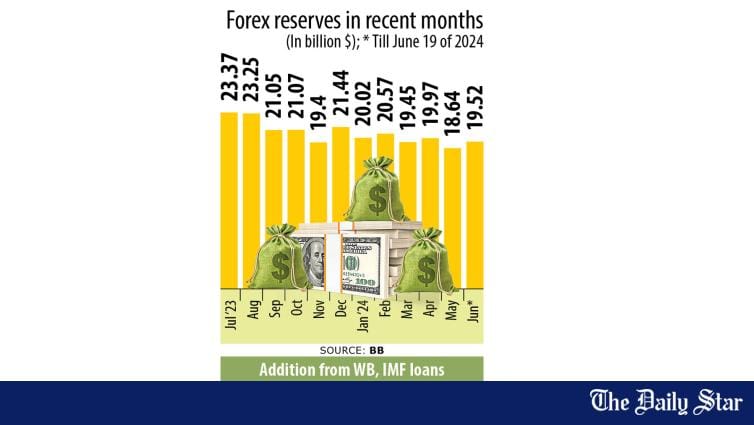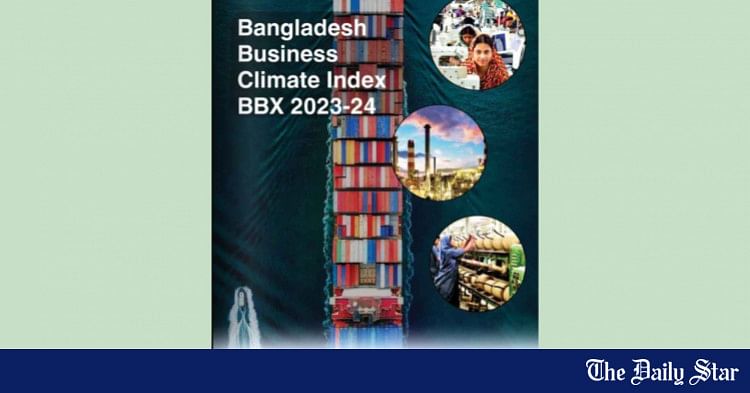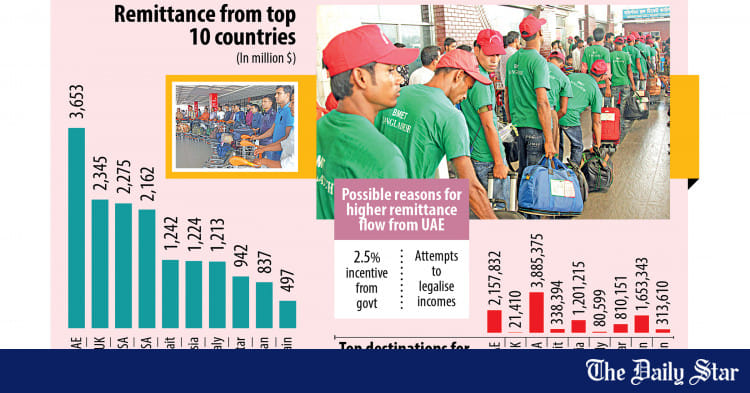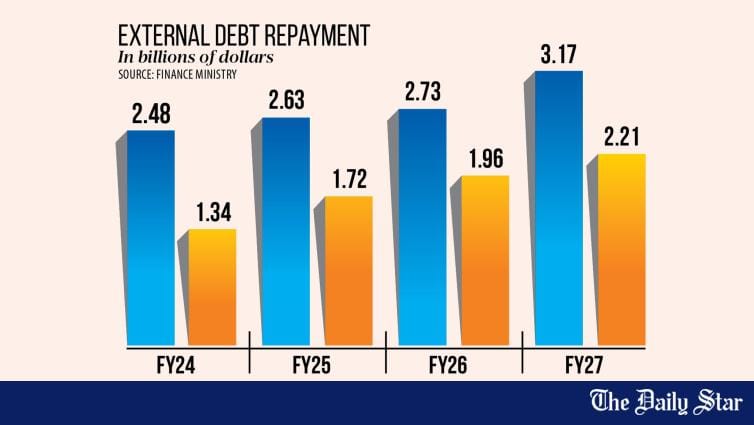Saif
Senior Member
- Joined
- Jan 24, 2024
- Messages
- 17,319
- Likes
- 8,373
- Nation

- Residence

- Axis Group


Bangladesh forex reserves increases to $19.53b thanks to additional remittances
Bangladesh’s foreign exchange reserves rose by US $318 million in the span of a week to hit $19.53 billion on June 19. Bangladeshi expatriates have sent about $1.65 billion as remittances in 1-14 days of this month, which is a huge inward flow just in two weeks. But it is usual for expatriat
Bangladesh forex reserves increases to $19.53b thanks to additional remittances
Published :
Jun 20, 2024 20:51
Updated :
Jun 20, 2024 20:55

Bangladesh's foreign exchange reserves rose by US $318 million in the span of a week to hit $19.53 billion on June 19.
Bangladeshi expatriates have sent about $1.65 billion as remittances in 1-14 days of this month, which is a huge inward flow just in two weeks. But it is usual for expatriates to send additional remittances ahead of Eid-ul-Azha, reports UNB.
According to the latest update of Bangladesh Bank (BB) the foreign exchange reserves were $19.21 billion on June 12. The reserves increased to $19.53 billion on June 19.
The foreign exchange flow will continue to rise in the coming weeks as the country is set to receive $1.65 billion from the International Monetary Fund (IMF) and the World Bank before the end of this June.
The IMF may release $1.15 billion in the third installment of its $4.7 billion loan in the last week of June while the WB is going to provide $500 million in budget support. This may send the reserves above $21 billion.
The latest improvement in the forex reserves situation comes a month after the central bank relinquished its control over the rate-setting mechanism and introduced a more flexible exchange rate regime.
Published :
Jun 20, 2024 20:51
Updated :
Jun 20, 2024 20:55
Bangladesh's foreign exchange reserves rose by US $318 million in the span of a week to hit $19.53 billion on June 19.
Bangladeshi expatriates have sent about $1.65 billion as remittances in 1-14 days of this month, which is a huge inward flow just in two weeks. But it is usual for expatriates to send additional remittances ahead of Eid-ul-Azha, reports UNB.
According to the latest update of Bangladesh Bank (BB) the foreign exchange reserves were $19.21 billion on June 12. The reserves increased to $19.53 billion on June 19.
The foreign exchange flow will continue to rise in the coming weeks as the country is set to receive $1.65 billion from the International Monetary Fund (IMF) and the World Bank before the end of this June.
The IMF may release $1.15 billion in the third installment of its $4.7 billion loan in the last week of June while the WB is going to provide $500 million in budget support. This may send the reserves above $21 billion.
The latest improvement in the forex reserves situation comes a month after the central bank relinquished its control over the rate-setting mechanism and introduced a more flexible exchange rate regime.








































